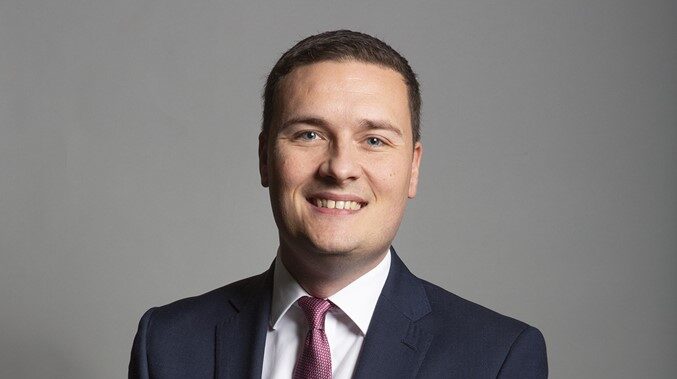A Labour government would introduce mental health hubs in every community, train thousands more doctors, nurses and health visitors and alleviate workloads of overburdened GPs as part of its drive towards creating a “neighbourhood” health service, the party has said.
Shadow health and social care secretary Wes Streeting (pictured) also focused on improving care for women as he unveiled the plans.
Speaking at The King’s Fund this morning, Streeting told delegates that in its 75th year, it was time the NHS was seen “as much as a neighbourhood health service as it is a national health service”.
In order to achieve this goal, Streeting revealed the party is looking at ensuring patients can access the help they need from a wider range of healthcare professionals closer to home.
As part of this drive, he added, the party has already committed to putting a mental health hub in every community and mental health support in every school – paid for by abolishing tax loop holes for private equity fund managers and private schools.
But Streeting further revealed Labour would also double the number of district nurses qualifying every year and train 5,000 new health visitors to “give every child the best start in life”.
Streeting also committed to doubling the number of medical school places – training an extra 7,500 more doctors and 10,000 more nurses and midwives a year – paid for by abolishing the non dom tax status.
Turning to women’s health, Streeting highlighted that if men were waiting an average of seven years for a diagnosis on a common condition as women are with endometriosis, “we would hear a lot more about it”.
So Streeting added he wanted to see health centres also act as “one stop shops” for women’s health so that if women need to discuss sensitive health issues with a specialist, they can do it closer to home. This would also reduce pressure on GPs.
To reduce the workload on GPs, Streeting said Labour would move more care into communities for specific conditions – giving the example of opticians referring patients to eye specialists without the need for a GP referral.
In a similar vein patients would be enabled to go to their local pharmacy to receive simple procedures that they currently get at GP surgeries like vaccinations.
Streeting also maintained that the choice of patients who want to see their GP virtually should be respected and while adding he had “no intention” of nationalising GPs.
He said the party was exploring how to make the future of general practice sustainable so that patients were not left without a GP in areas where more and more GPs were choosing to take the salaried route and partnerships were being forced to close because fewer GPs wanted to take them on.
Three principles
“Labour is developing a serious plan to fix the front door to the NHS because if we can get patients seen earlier and problems spotted sooner, we can turn around the health service,” Streeting said.
“Patients should be in control of their own healthcare with real choice about how they use their health service.
“Those are the three principles of Labour’s reform agenda – care on your doorstep, there for you when you need it and patients in control.”
Streeting admitted that some of the proposals have set the “cat among the pigeons” but added this was deliberate.
“We are road testing bold ideas because the NHS crisis is going to require bold action,” he continued.
“I want to have the debate and the conversation with experts and those working in the health service now so that when the next election comes, we are ready to hit the ground running.
“And it will take time to recover and reform the NHS so that it is fit for the future which is why we don’t have time to waste.
“After 13 years of Conservative waste and failure, it falls to Labour, the party that created the national health service 75 years ago, to build the neighbourhood health service our country will need for the next 75 years and we will need your help to do it.”
Radical reform required
In the wake of Streeting’s speech, The King’s Fund senior fellow Beccy Baird said: “There has been a clear consensus for more than 30 years, under successive governments, that moving care from hospital to communities is the right thing to do. The challenge is making this actually happen.
“Previous attempts to do this have failed spectacularly, with levels of investment and workforce growing in hospitals, yet stagnating or falling in primary and community care services.”
Baird said there was much to welcome in the broad aims, however, translating these into tangible change would require radical reform across the whole health and care system – from social care reform, to fully engaging the voluntary sector and improving NHS buildings.
“More GPs will be key to driving this change, but also vital will be the time and capacity from experienced GPs, who are already under extreme pressure, to train more new GPs,” she continued.
“Efforts to retain these experienced staff are therefore critical to achieve the ambitions on recruitment. It will also rest on the training, retaining and integrating of more paramedics, district nurses, physiotherapists and other professionals that support people in the community.”
